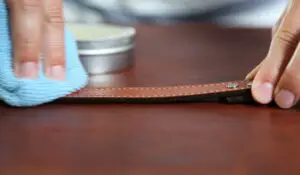We as dog owners are told that dogs licking our faces is a sign of love. Does that imply when they lick our hands, they mean the same thing, or does science suggest something else?
Are there any signs that a dog has licked you? A dog’s temperament and personality can vary greatly depending on the breed. All dogs, however, share a unique fondness for licking the hands of their owners. At first glance, you might interpret it as a sign of romantic love or friendly familiarity, but the deeper meaning is more complicated.
Why Does My Dog Lick Me so Much?
As dogs can’t talk to one another and their loving owners, they use their senses of touch, taste, and smell to communicate with you.
The sense of taste and smell is more important to dogs than we are when expressing ourselves. Since they cannot communicate verbally, they must have access to alternative means of communication. For example, your dog may be licking your hands to greet you. However, before they begin licking, your dog may give you a sniff. This is because they learn about you by smelling and tasting your skin.
Reasons Why Dogs Lick
There are various reasons why a dog might lick your hands, and being aware of them may help you adjust your attitude toward it. Continue reading to learn more.
Grooming
It’s common for pack animals like dogs to groom one another, especially when close. Other dogs in the pack will groom puppies and dogs who are too close to one another or too young to know how to groom themselves.
Throughout a dog’s life, it will continue to engage in grooming behaviors. In the context of its pack, the dog is likely to treat your hand as though it were its own, licking it in an attempt to groom you and show its affections. There is also the idea that your dog sees you as part of the pack.
Communication
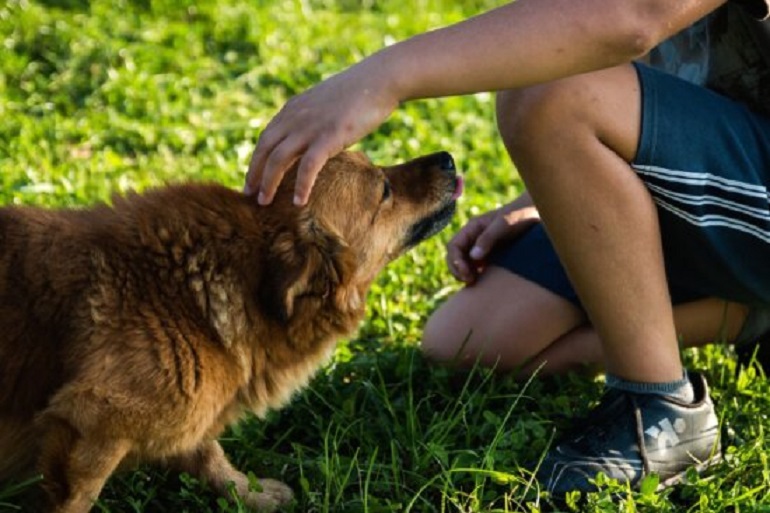
Dogs may use their licking gesture to communicate. However, even in an environment where the dog is calm, the dog’s licking may be faster and more aggressive. You may notice your pup frantic licking more strenuously when agitated or nervous. When you get home from a long day at work, your dog’s licking can seem somewhat out of control.
A dog’s “hello” and “lovable” licking tends to be calm, but it can also become furious and overly emotional. Slobbering can get out of hand if your dog tries to get your attention and affection, becoming over-excited, frightened, or stressed.
When they’re licking you, please pay attention to their body language. When your dog is delighted, it will lick his lips desperately. To see if they’d be interested, you could ask them whether they’d like to take a walk. Try to figure out what is causing your dog’s distress or separation anxiety and reduce or eliminate the stressor.
Affection
The act of dog licking can be a sign of affection and love. Because they care about you, your dog may lick your face and hands. The release of endorphins that occur due to affectionate licking may be pleasurable for your dog.
In addition to showing affection, some experts believe that licking is also a gesture of respect. It could be a sign that your dog regards you as its pack leader. It’s common for dogs to lick a human’s mouth or another pet’s muzzle as a sign of submission. In your dog’s eyes, you’re the most important person.
Also, it can be something like: “Do you have anything to eat?” When pups in the wild depend on their mothers to share some of the fresh food, this instinct seems to be evolved in most pets.
Compulsion
Some dogs’ compulsive licking may be an expression of their obligation to their owner or the owner’s responsibility. This is a lot more than your dog licking their paws, though. They may also be licking furniture, a wall, or an empty dish in addition to their mouths. If you doubt the source of the compulsion, you should consult a veterinarian.
Depending on whether or not the dog receives a clean bill of health from the veterinarian, a trainer or behavioral expert may be able to better assist you in changing your dog’s behavior of excessive licking and managing compulsions.
Skin Issues or Allergies
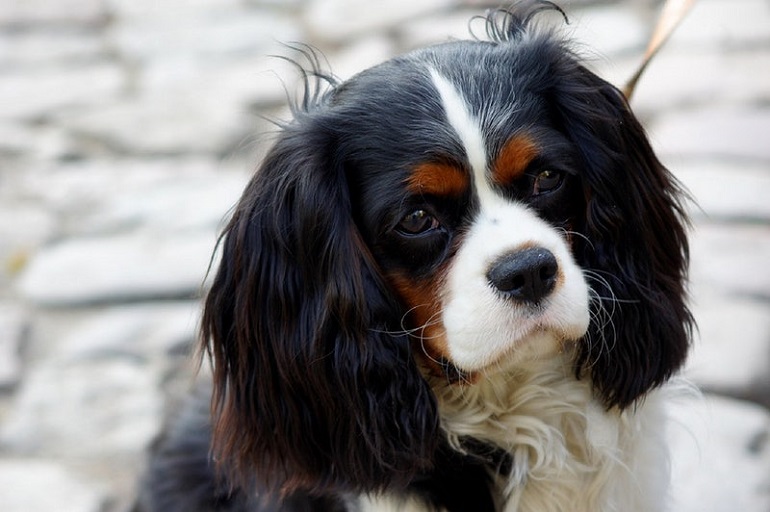
When a dog is constantly licking his skin and itching, this could signify a skin problem or allergy. To find out what’s wrong, take them to the veterinarian. After that, a simple lotion or bath may be all that is needed.
It is possible to treat allergies with medication or alterations to their diet. To help relieve and prevent widely known skin problems, consider feeding your dog a diet that contains nutrients like omega-3 fatty acids.
When a veterinarian treats your pup’s skin or allergies, it should stop licking. But it can also become a habit and even compulsive for some dogs. So when you’ve taken care of any medical issues, you should now focus on any mental health or behavioral issues that may be a contributing factor.
A Way of Greeting
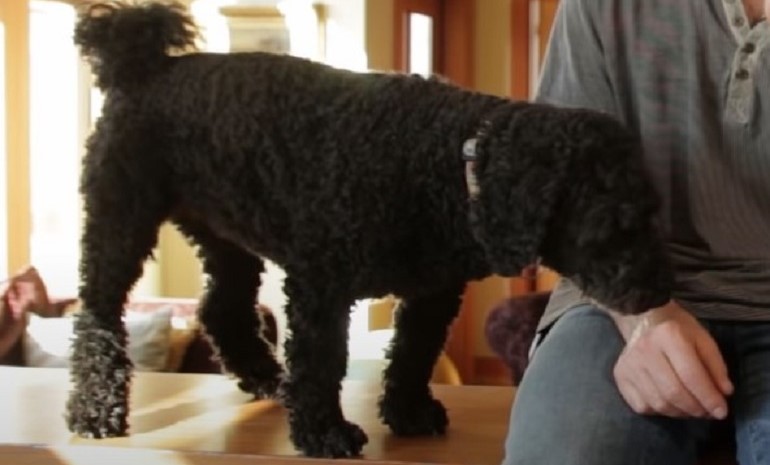
Anyone who has ever met a dog knows that the best way to approach a new pup is to extend your hand. So, dog licking could also mean that the dog is saying hello to you.
As a dog’s senses of taste and smell are essential, they’d examine your scent and see if you were trustworthy by sniffing your hand. Afterward, dogs lick your hand and let you know that they’re willing to trust you.
Gauging Your Mood
Emotions and intentions can be detected through the sweat pheromones released by humans. It’s interesting that dogs can decipher these chemical changes and better understand a person’s mood. Dogs can’t pick up pheromones with their tongues, but licking sends signals to Jacobson’s organ, which can then use that information to figure out how you’re feeling.
The smell and taste sensation of a dog’s body are so powerful that they will first sniff your hand, especially if you are a stranger, or judge your mood if they already trust you.
Instinctive Pack Behavior
Many different factors contribute to the possibility that a dog will lick your hand, but most revolve around the notion that your dog considers you a member of the pack. Because dogs are related to wolves, they exhibit pack behavior with their owners.
Should You Encourage Your Dog to Lick Your Hands?
Yes! If you don’t mind a little slobber, you can let your canine lick your hands. However, if your dog licks your hand, don’t punish it. As we previously mentioned, licking is an essential form of communication for dogs. If you try to stop your pup from licking, you may stifle their communication ability.
Forcing someone to stop kissing you or licking you can be like punishing your dog for licking. And we are sure you do not want to convey this to your canine companion!
What to Do If You Need Your Dog to Stop Licking?
The best course of action as a positive reinforcement to stop your dog from licking your hand is to refrain from providing any reward or encouragement.
However, as with any dog training, the changes in their behavior will take some time to manifest themselves. Therefore, it’s always a good idea for a quick-fix solution to keep your dog occupied by giving him a chew toy or taking him for a walk, which will give him something else to focus on. Bitter spray can also be used as a quick fix. You can use this spray on your dog, but it’s designed to make it taste not very good.
Can You Get Sick from a Dog Licking Your Hands?
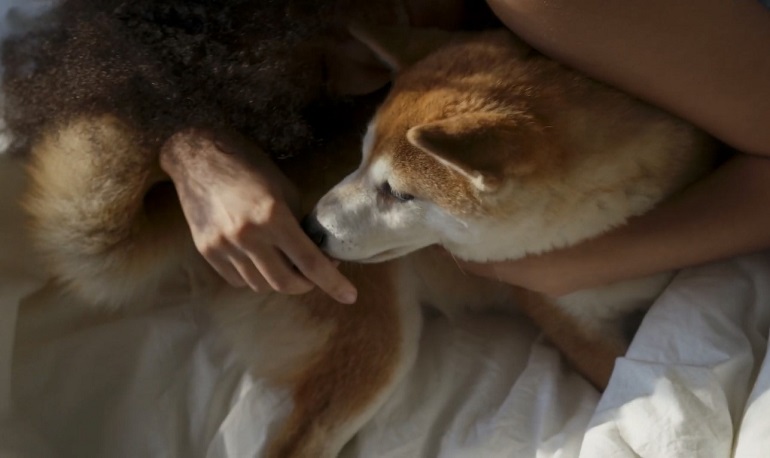
Even though it’s a common misconception that dog saliva has healing properties and is fresher than human saliva, this has been proven false. E-coli, the parasite giardia, and salmonella can all be found in a dog’s mouth because they are known to lick themselves clean, eat their droppings, and drink from the toilet.
Dogs’ mouths are full of germs, but these germs aren’t enough to cause any significant harm or illness for the vast majority of pet parents.
Final Thought
Your dog will sniff and lick you after you’ve been preparing food or cuddling another puppy recently. The smell of another dog on a favorite human can cause some dogs to become outraged or jealous!
If a dog licks you, you should also be aware of your cosmetics and moisturizers. If your dog is particularly a fan of the scent of skin cream, lip gloss, or moisturizer, they may go wild. Be extra careful not to let your dog lick any products that could make them sick, even though they are generally safe for us humans to use.



